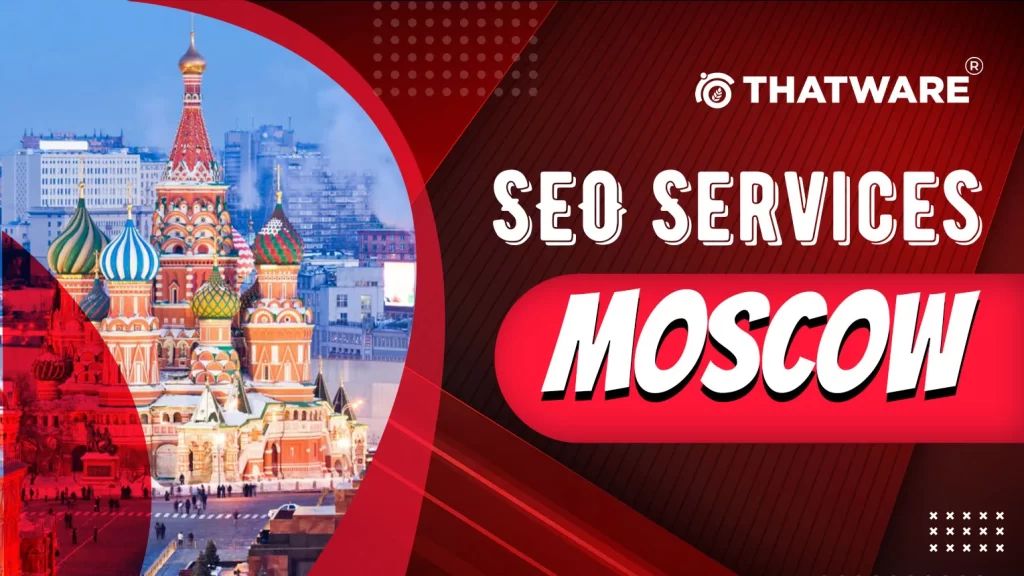GET A FREE CUSTOMIZED SEO AUDIT & DIGITAL MARKETING STRATEGY FOR YOUR BUSINESS in Russian Federation
In the ever-evolving landscape of Russian commerce, establishing a robust online presence has become synonymous with success. As businesses navigate the competitive terrain, the pivotal role of SEO (Search Engine Optimization) in amplifying visibility and driving growth cannot be overstated. In this digital era, where consumer behaviour is intricately linked to online search habits, this article explores the dynamic realm of SEO services and how they serve as the catalyst for propelling Russian businesses to new heights. From navigating the nuances of Yandex and google to crafting locally resonant content, the journey begins by understanding the pulse of the Russian market and unleashing the full potential of SEO strategies.

⭐️Understanding the Russian Market
In the vast landscape of the Russian market, a nuanced understanding of the online environment is crucial for businesses aiming to thrive. Here, we delve into the unique characteristics that define the Russian online space and the challenges and opportunities that businesses encounter.
⭐️The Russian Online Landscape
Russia boasts a diverse online landscape, shaped by its expansive geography and diverse population. With over 110 million internet users, Russia represents a massive digital audience. Understanding the regional variations in internet usage patterns and preferences is vital. Urban centres often exhibit different online behaviours compared to rural areas, making it imperative for businesses to tailor their online strategies accordingly.
⭐️Search Engine Preferences
While Google is a global giant, the Russian search engine market is predominantly dominated by Yandex. To succeed in the Russian digital space, businesses must adapt their SEO strategies to align with Yandex’s algorithms and ranking factors. Yandex places a strong emphasis on keyword relevance, domain age, and the uniqueness of content, necessitating a tailored approach distinct from the strategies employed for Google.
⭐️Unique Challenges and Opportunities
Navigating the Russian market presents both challenges and opportunities. The linguistic and cultural nuances demand a localised approach to digital content. Businesses need to invest in understanding Russian search queries, ensuring that their content resonates with local audiences. Additionally, the competitive landscape requires a strategic and innovative approach to stand out among the diverse offerings in the market.
⭐️Legal and Regulatory Considerations
Russian online regulations and legal considerations also play a crucial role. Businesses must be aware of data protection laws, restrictions on certain types of content, and other regulatory frameworks that may impact their online presence. Compliance with these regulations not only ensures a smoother online operation but also enhances trust among Russian consumers.
⭐️Consumer Behaviour Trends
To craft effective SEO strategies, businesses must stay attuned to evolving consumer behaviours. The rising trend of mobile internet usage in Russia necessitates mobile-optimised websites. Additionally, an understanding of the prevalent preferences in online shopping, social media engagement, and information consumption can guide businesses in tailoring their content to meet the needs and expectations of the Russian audience.
⭐️The Role of SEO in Business Growth
In the dynamic landscape of the Russian market, where online presence is becoming increasingly pivotal, the role of Search Engine Optimization (SEO) stands out as a linchpin for sustainable business growth. SEO is not merely a digital marketing strategy; it’s a powerful catalyst that can propel businesses to the forefront of the digital realm. Here’s an in-depth look at why SEO is indispensable for unlocking unparalleled growth opportunities:
1. Enhancing Visibility and Credibility:
- Search Engine Rankings: The primary objective of SEO is to boost a website’s visibility on search engines. Higher rankings on platforms like Yandex significantly increase the likelihood of attracting organic traffic.
- Building Trust: Websites that appear at the top of search results are often perceived as more trustworthy and authoritative. This enhanced credibility contributes to establishing a positive brand image.
2. Targeted Reach and Audience Engagement:
- Understanding User Intent: SEO involves aligning your content with the search queries of your target audience. By catering to user intent, businesses can attract visitors genuinely interested in their products or services.
- Localisation for Relevance: In the context of the Russian market, effective SEO entails localisation — adapting content to the nuances of the Russian language and culture, ensuring it resonates with the local audience.
3. Cost-Effectiveness and Sustainable Results:
- Organic Traffic vs Paid Advertising: While paid advertising can deliver quick results, the sustainability, and cost-effectiveness of organic traffic through SEO cannot be overstated. Once a website secures a top position, it continues to attract visitors without incurring ongoing advertising costs.
- Long-Term Investment: SEO is a long-term investment that pays dividends over time. By consistently optimising content and adhering to best practices, businesses can maintain and improve their search rankings.
4. Adapting to Changing Consumer Behaviour:
- Mobile Optimization: With a significant portion of the Russian population accessing the internet through mobile devices, mobile optimization is integral to SEO success. Responsive websites that provide a seamless mobile experience are favoured by search engines and users alike.
- Content Relevance: SEO necessitates a focus on creating relevant and valuable content. This not only satisfies the evolving preferences of search algorithms but also resonates with users seeking informative and engaging material.
5. Competitive Edge in the Digital Landscape:
- Outperforming Competitors: In a crowded online marketplace, businesses that invest in SEO gain a competitive edge. A well-optimised website is more likely to attract attention, outrank competitors, and capture a larger share of the market.
- Continuous Improvement: SEO is an iterative process. Businesses that consistently refine and adapt their strategies based on performance data stay ahead of the competition and are better positioned to capitalise on emerging opportunities.
⭐️Key SEO Strategies for the Russian Market
In the vast and dynamic landscape of the Russian online market, implementing effective SEO strategies is crucial for businesses aiming to boost their visibility on search engines, including Google. Here are key strategies tailored for success in the Russian digital space:
⭐️Keyword Research and Localization:
Understanding Russian Search Queries: Conduct thorough research to identify the most relevant and frequently used keywords in Russian search queries. Consider linguistic nuances and cultural factors that might influence search behaviour.
Localisation is Key: Tailor your keywords to the Russian language, taking into account variations and regional differences. Craft content that resonates with the local audience to enhance the relevance of your website in Google’s search results.
⭐️Optimizing for Google:
Google’s Dominance in Russia: While Yandex is a prominent search engine, Google also plays a significant role in the Russian market. Ensure that your website is optimised for Google’s algorithms by adhering to best SEO practices, including mobile optimisation, quality content, and authoritative backlinks.
Multilingual SEO: If your target audience includes English speakers in Russia, incorporate multilingual SEO strategies to capture a broader segment of the market.
⭐️Mobile Optimization:
Mobile-Friendly Websites: Given the prevalence of mobile internet usage in Russia, prioritise mobile responsiveness. Google considers mobile-friendliness as a ranking factor, and a seamless mobile experience enhances user satisfaction and SEO performance.
Accelerated Mobile Pages (AMP): Implement AMP to ensure fast-loading mobile pages, positively influencing both user experience and search rankings.
⭐️Quality Content Creation:
Relevance and Value: Develop content that aligns with the interests and needs of your Russian audience. Offer valuable information, insights, and solutions to establish your website as a trusted resource.
Multimedia Content: Incorporate diverse content formats, such as videos, images, and infographics, to cater to varied preferences and enhance engagement.
⭐️Backlink Building Strategies:
Local and Industry-Relevant Backlinks: Acquire high-quality backlinks from local and industry-specific websites to strengthen your website’s authority in the eyes of Google.
Guest Posting: Explore opportunities for guest posting on reputable Russian websites to expand your online presence and build credible backlinks.
⭐️Measuring SEO Success
In the dynamic realm of SEO, tracking and evaluating the success of your efforts is paramount. Here, we delve into the key performance indicators (KPIs) that will help you gauge the effectiveness of your SEO strategies in the Russian market, with a particular focus on the widely used search engine, Google.
⭐️Keyword Rankings:
Regularly monitor the rankings of your targeted keywords on Google. A rise in rankings indicates improved visibility and relevance.
Utilise tools like Google Search Console and third-party rank tracking tools for accurate and up-to-date information.
⭐️Organic Traffic Growth:
Analyse the overall organic traffic to your website. A consistent increase in organic traffic is a strong indicator of successful SEO efforts.
Use Google Analytics to segment and track organic traffic specifically, and identify patterns and trends over time.
⭐️Conversion Rates:
Evaluate the conversion rates of organic traffic. Assess how well your SEO efforts are translating into tangible business goals, such as lead generation or sales.
Set up conversion tracking within Google Analytics to attribute conversions accurately to your SEO initiatives.
⭐️Bounce Rates and Dwell Time:
Examine bounce rates and dwell time on your website. Low bounce rates and longer dwell times suggest that visitors find your content valuable and engaging.
Address high bounce rates by improving content quality, relevance, and user experience.
⭐️Backlink Quality and Quantity:
Assess the quality and quantity of backlinks pointing to your site. Google values high-quality, relevant backlinks as a sign of authority and trust.
Regularly audit your backlink profile using tools like Moz or Ahrefs to identify and disavow low-quality links.
⭐️Page Load Speed:
Page load speed is a crucial factor for both user experience and search engine rankings. Slow-loading pages can lead to higher bounce rates and lower rankings.
Utilise Google PageSpeed Insights to identify opportunities for improving page speed and overall site performance.
⭐️Mobile Responsiveness:
With the prevalence of mobile users in the Russian market, it’s essential to assess your website’s mobile responsiveness.
Use Google’s Mobile-Friendly Test to ensure that your site provides an optimal experience on mobile devices.
⭐️Google Search Console Insights:
Leverage Google Search Console for valuable insights into how Googlebot perceives your site. Monitor index coverage, fix crawl errors, and receive alerts about critical issues.
Regularly review the Search Analytics report to understand which queries drive traffic to your site and optimise accordingly.
⭐️Local SEO Metrics:
If your business has a local presence, monitor local SEO metrics. This includes local keyword rankings, Google My Business performance, and local citation consistency.
Ensure your business information is accurate and up-to-date on local directories and platforms.
⭐️Competitor Analysis:
Keep a watchful eye on your competitors. Compare your SEO performance metrics with those of key competitors to identify areas for improvement.
Tools like SEMrush or SimilarWeb can provide valuable insights into competitor strategies and performance.
💪🏼Overcoming Challenges
The journey towards SEO success in the Russian market is not without its hurdles. Understanding and navigating these challenges are essential for businesses aiming to supercharge their online presence on Google. Here are some common challenges and effective strategies to overcome them:
a. Language and Cultural Nuances:
Challenge: Russian is a language rich in cultural nuances and expressions. Translating content directly from English may lead to misunderstandings or, at worst, cultural insensitivity.
Strategy: Invest in professional translation services that not only convert language accurately but also capture the cultural nuances. Localise content to resonate with the Russian audience, reflecting an understanding of their customs and preferences.
b. Yandex vs Google:
Challenge: While Google is the global search engine giant, Yandex dominates the Russian market. Optimising for Yandex can be different from Google’s algorithms.
Strategy: Develop a dual optimisation strategy. Prioritise Google, but don’t neglect Yandex. Understand Yandex’s specific ranking factors and incorporate them into your SEO efforts, ensuring visibility across both search engines.
c. Mobile Responsiveness:
Challenge: The increasing use of mobile devices for internet access in Russia requires websites to be optimised for mobile responsiveness.
Strategy: Ensure your website is mobile-friendly, providing a seamless experience across various devices. Google places significant emphasis on mobile-friendliness as a ranking factor, making this crucial for SEO success.
d. Navigating Google’s Algorithm Updates:
Challenge: Google frequently updates its search algorithms, impacting search rankings. Staying updated and adapting to these changes can be challenging.
Strategy: Stay informed about Google’s algorithm updates through reputable sources. Continuously monitor your website’s performance and adapt your SEO strategy accordingly. Focusing on high-quality, relevant content can help mitigate the impact of algorithm changes.
e. Competing in a Saturated Market:
Challenge: The Russian online market can be highly competitive, making it challenging for new entrants to establish a strong online presence.
Strategy: Conduct thorough competitor analysis to identify gaps and opportunities. Develop a unique value proposition and focus on niche keywords to target specific segments of the market. Consistently producing high-quality content can also differentiate your business.
f. Building Quality Backlinks:
Challenge: Acquiring high-quality backlinks in a trustworthy manner can be a slow and challenging process.
Strategy: Focus on creating valuable and shareable content that naturally attracts backlinks. Engage in outreach campaigns to relevant websites and build relationships within your industry. Prioritise quality over quantity when it comes to backlinks.
g. Data Privacy Concerns:
Challenge: Data privacy is a growing concern globally, and Russia has its own set of regulations.
Strategy: Ensure compliance with Russian data protection laws. Clearly communicate your data privacy policies to build trust with users. Implement secure protocols to safeguard user information, demonstrating a commitment to privacy.
👉Future Trends in Russian SEO
As the digital landscape continues to evolve, so does the field of SEO, and understanding the upcoming trends is crucial for businesses aiming to stay competitive in the Russian market, particularly on Google. Here are some anticipated future trends in Russian SEO:
👉Voice Search Optimization:
With the increasing prevalence of voice-activated devices and virtual assistants, optimising for voice search is becoming paramount. Businesses should focus on conversational keywords and providing direct, concise answers to common queries.
👉User Experience (UX) Signals:
Google places a strong emphasis on user experience, and this trend is expected to intensify. Factors such as page speed, mobile responsiveness, and overall site usability will play a crucial role in search rankings. Businesses should invest in creating seamless and user-friendly online experiences.
👉Video Content Dominance:
Video content has become increasingly popular across the globe, and Russia is no exception. Google favours diverse content types, and incorporating video into SEO strategies can boost visibility. Companies should consider creating engaging video content that resonates with their target audience.
👉E-A-T (Expertise, Authoritativeness, Trustworthiness):
Google prioritises content that demonstrates expertise, authoritativeness, and trustworthiness. Establishing credibility through high-quality, well-researched content is essential. Businesses should focus on becoming thought leaders in their industry and building trust with their audience.
👉Featured Snippets and Position Zero:
Attaining the coveted position zero in Google’s search results is a growing trend. Businesses can achieve this by creating content that directly answers common questions or queries. Structured data and markup are crucial for increasing the likelihood of appearing in featured snippets.
👉Mobile-First Indexing:
Google has shifted towards mobile-first indexing, considering the mobile version of a site as the primary source for indexing and ranking. Optimising websites for mobile devices is not just a trend but a necessity for maintaining and improving search visibility.
👉Artificial Intelligence (AI) Integration:
AI is increasingly influencing search algorithms. Google’s algorithms, powered by machine learning, are becoming more sophisticated in understanding user intent. Businesses should explore ways to incorporate AI into their SEO strategies, such as using AI for content creation or personalisation.
👉Local SEO Emphasis:
Local search optimisation is gaining importance, especially for businesses with physical locations. Google My Business optimisation, local keywords, and location-specific content will be crucial for capturing local search traffic.
👉Zero-Click Searches:
With the rise of featured snippets and rich results, there’s a growing trend of users obtaining information directly from the search results without clicking through to a website. Businesses should adapt their content strategy to provide valuable information even in snippet form.
👉Core Web Vitals:
Google’s Core Web Vitals, which focus on aspects like loading, interactivity, and visual stability, are becoming ranking factors. Websites that provide a smooth and enjoyable user experience are more likely to rank higher in search results.

👉Role of ThatWare as a leading SEO Service Provider
- Strategic Expertise: At ThatWare, we take pride in our role as a leading SEO service provider, offering strategic expertise to drive tangible results for our clients.
- Bespoke Strategies: We craft bespoke SEO strategies tailored to the unique needs of businesses, going beyond conventional practices to ensure maximum impact in the Russian market.
- Comprehensive Keyword Research: Our approach involves in-depth keyword research and localisation, ensuring not only prominent Google rankings but also resonance with the target audience.
- User-Centric Design: As advocates of user-centric design, we prioritise creating seamless online experiences, aligning with Google’s emphasis on user experience signals for better search rankings.
- Adaptation to Industry Trends: We stay at the forefront of industry trends, including voice search optimisation, video content dominance, and the integration of artificial intelligence, setting our services apart.
- Focus on E-A-T: Our commitment to Expertise, Authoritativeness, and Trustworthiness (E-A-T) empowers businesses to establish themselves as industry leaders, building credibility and trust with their audience.
👉Conclusion
The landscape of Russian business is evolving, and harnessing the full potential of online visibility is imperative. SEO services emerge as the catalyst for this transformation, offering businesses the means to not only navigate the intricacies of the Russian market but to thrive within it. At ThatWare, we stand as more than just SEO service providers; we are architects of success, crafting bespoke strategies that resonate with local audiences and align with Google’s ever-evolving algorithms. By embracing the future trends discussed herein, businesses can not only enhance their digital presence but also future-proof their strategies for sustained growth. As the digital era unfolds, our commitment remains unwavering — to be the driving force behind supercharging Russian businesses, unleashing the power of SEO to propel them towards enduring success in the dynamic online landscape


